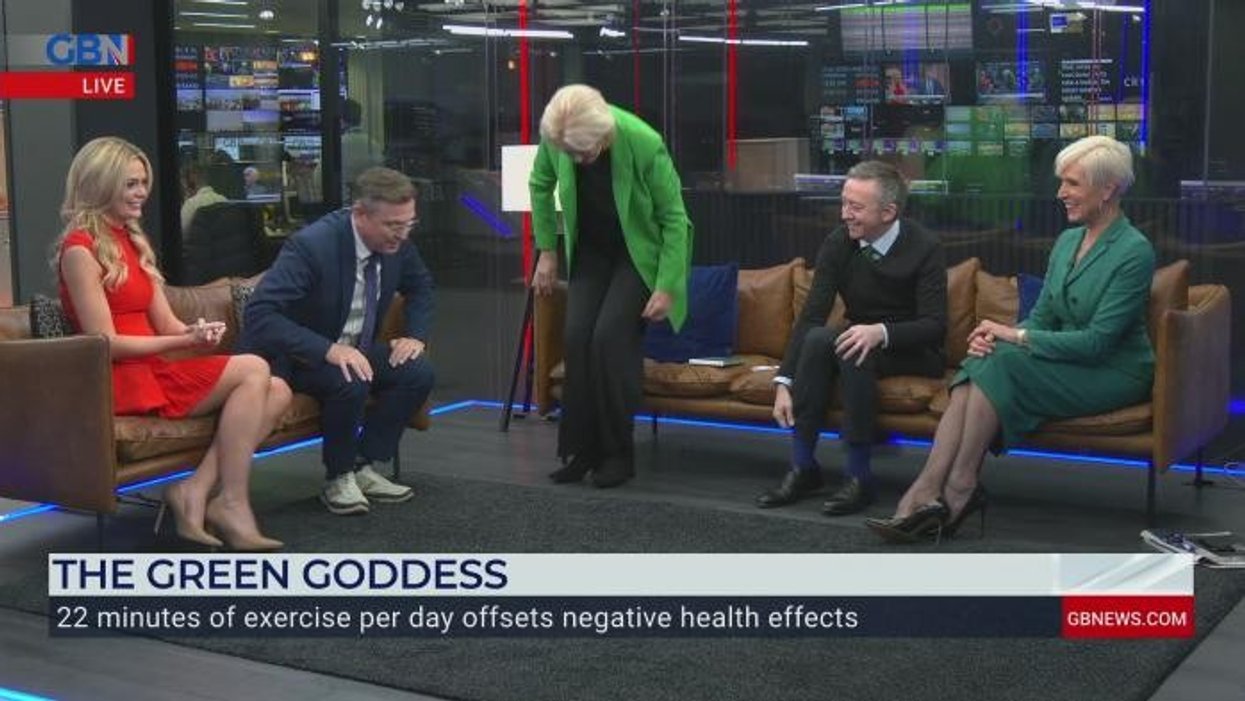Taking part in a simple exercise more often can help women over 50 slim down - 'it has many benefits!'

Exercise is a great way to relieve symptoms and burn fat for women during perimenopause
Don't Miss
Most Read
Women usually experience menopause between the ages of 45 and 55, and this can bring on a number of symptoms, including unwanted weight gain.
An expert spoke exclusively to GB News to share tips on how exercise more regularly can help with weight loss.
Co-founder of The Fast 800 Dr Clare Bailey explained the benefits of everyday exercise for women during this time in their lives.
She explained upping the amount of simple exercises you do, such as walking, can be greatly beneficial for relieving menopause symptoms and promoting weight loss.

Walking can be a simple way to stay fit and healthy
|GETTY
Dr Bailey said: "If you're not currently doing much exercise, it can be quite daunting to start, particularly if you’re not feeling your best.
"My advice would be to make a start with any type of exercise that you enjoy and that you find manageable. For example, walking regularly, for as long as you're comfortable with, to begin with, is a great start.
"Then you can gradually start to increase your speed and the length of time you walk for. There are lots of benefits to exercise, both mentally and physically.
"Try not to spend too long sitting around and try to get up and move your body – it will help improve your mood. Exercising in groups is also a good idea as it can increase your enjoyment levels and help with motivation."
Walking is an easy exercise for many people to add to their routines and the average person can burn more than 100 calories when walking for 30 minutes. The faster you walk, and the steeper the terrain, the more calories you will burn, which can lead to weight loss.
Dr Bailey explained weight gained during menopause typically sits around the midriff and diet is another key way to get rid of this.
The expert suggested intermittent fasting is one of the most effective plans to shift the extra pounds. This involves eating within certain periods.
The expert told GB News: "If you find that the weight is creeping on, intermittent fasting can be incredibly effective, and it can also help you shed weight from the waist and the neck and improve your metabolic health.
"Cutting your calories to 800-1,000 calories a day on two or three days a week can make all the difference - and it’s quite simple to introduce.
"Doing a few 800-calorie fasting days, where your body starts burning excess fat as fuel, is often all it takes to get you back to your previous weight.
"Intermittent fasting has been shown to be highly effective at getting sugar spikes down and reducing chronic inflammation, as well as reducing risks of type 2 diabetes and reducing blood pressure."
Dr Bailey shared more about why women will gain weight during menopause. She said: "When it comes to menopause, most people put on a little bit of weight despite not changing their lifestyle.
"They’ll find that they’re eating the same food, doing the same amount of exercise, yet they find that they're not in control of their weight in the way they used to be. And that can be incredibly frustrating when nothing else in their life has changed.
LATEST DEVELOPMENTS

Exercise is a great way to manage weight during menopause
|GETTY
"However, there are lots of elements to consider when it comes to the menopause and weight gain. It’s likely that your oestrogen levels will have dropped and as a result, your mood may have changed.
"You might not be sleeping well, you might be getting a bit of brain fog, feeling irritable and stressed - and what do people do if they’re not feeling their best? They are more inclined to reach for the sugary, starchy foods that provide comfort, a sugar hit to give you a bit of a lift.
"But it's more complicated than just reaching for a snack or comfort food. When oestrogen levels start to drop, it also affects the way your body manages protein.
"It turns out that your body is less able to process protein as the hormone levels drop, as they would have done pre-menopause, so you need to eat extra protein to compensate. Having enough protein is a big factor when it comes to hunger, so if you're not getting enough protein, you will remain hungry."











